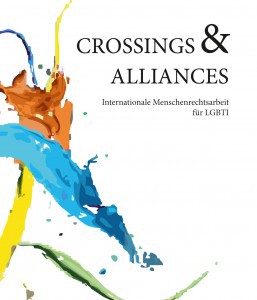The Yogyakarta Principles need an intersex update
Human rights apply to all humans, or so it is said. For centuries, however, what this really meant was that human rights applied only to men, and only to those men who were not enslaved or colonized. The fact that human rights now apply to women and people of color, for example, is due to the success of the women’s and civil rights movements.
The Yogyakarta Principles were formulated in 2006 by a group of international human rights experts who had gathered in the Indonesian city of that name. Its 29 principles clarify what human rights mean with respect to sexual and gender minorities. The Yogyakarta Principles are a set part of human rights work. They describe what states would have to do if human rights were in fact applied to people independently of their sexual orientation or gender identity.
What about intersex people?
The letter “I” is being added ever more frequently to the acronym LGBT. The “I” stands for intersex people, who are pathologized and stigmatized by the medical category “Disorders of sexual development” (DSD). On account of anatomical, hormonal or chromosomal features, intersex people are viewed as neither completely female nor completely male. Intersex bodies are outside the binary gender system, which can lead to serious medical and legal consequences. Parents are pressured to approve gender-assignment operations and hormonal treatments. Babies, children and adolescents have a gender imposed upon them.
Since the 1990s, a movement has been fighting for the rights of intersex people. In 2008 a group of activists succeeded in having the topic presented at the United Nations. In Germany, work done in connection with an alternative report for CEDAW (Convention on the Elimination of all Forms of Discrimination Against Women) at the UN drew attention to the systematic violation of the human rights of intersex children and youth. Working together with Lucie Veith from the Bundesverband Intersexuelle Menschen e.V. (Intersex Federation in Germany), the LSVD (Lesbian and Gay Federation in Germany) passed the resolution “Protect the Human Rights of Intersex People” in 2009. Among other things, it states that medical interventions may be taken “solely with the informed consent of the affected intersex individual”. In 2013, the UN Special Rapporteur on Torture described “normalizing” surgery on sexual organs without that individual’s free and informed consent as torture.
Another reason why the human rights of intersex people are insufficiently protected is because these rights are not codified. Hardly anyone knows what it means for human rights to apply to intersex people. The Hirschfeld-Eddy Foundation therefore organized an expert workshop on the topic: “Do the Yogyakarta Principles need an intersex update?” Under the direction of Dan Ghattas from the German affiliate of Organisation Intersex International (OII Deutschland/IVIM), the workshop examined actual examples to assess the extent to which the lived reality of intersex people is covered by the Yogyakarta Principles. Konstanze Plett, a law professor at the University of Bremen who has studied intersex issues for years, welcomed the workshop’s central question in her opening address.
Legal discrimination on the basis of personal status poses serious challenges to intersex people in many areas of their lives. A much graver matter, however, concerns the protection of bodily integrity. In order for the human right to bodily integrity to apply to intersex people, a number of the Yogyakarta Principles need to be expanded.
“The authors of the Yogyakarta Principles had little or no knowledge of intersex lives,” observes Ghattas. The results of the workshop need to be consolidated and compiled. The Hirschfeld-Eddy Foundation will be promoting this work within the framework of its Crossings&Alliances series of events. A follow-up workshop with intersex direction and participation took place in september 2015 . Because one thing is now clear: the Yogyakarta Principles need an intersex update.
Sarah Kohrt
LGBTI-Platform Human Rights
Crossings & Alliances series of events
Dan Christian Ghattas: Human Rights between the sexes — a preliminary study on the life situation of inter* indivuduals (2013)

